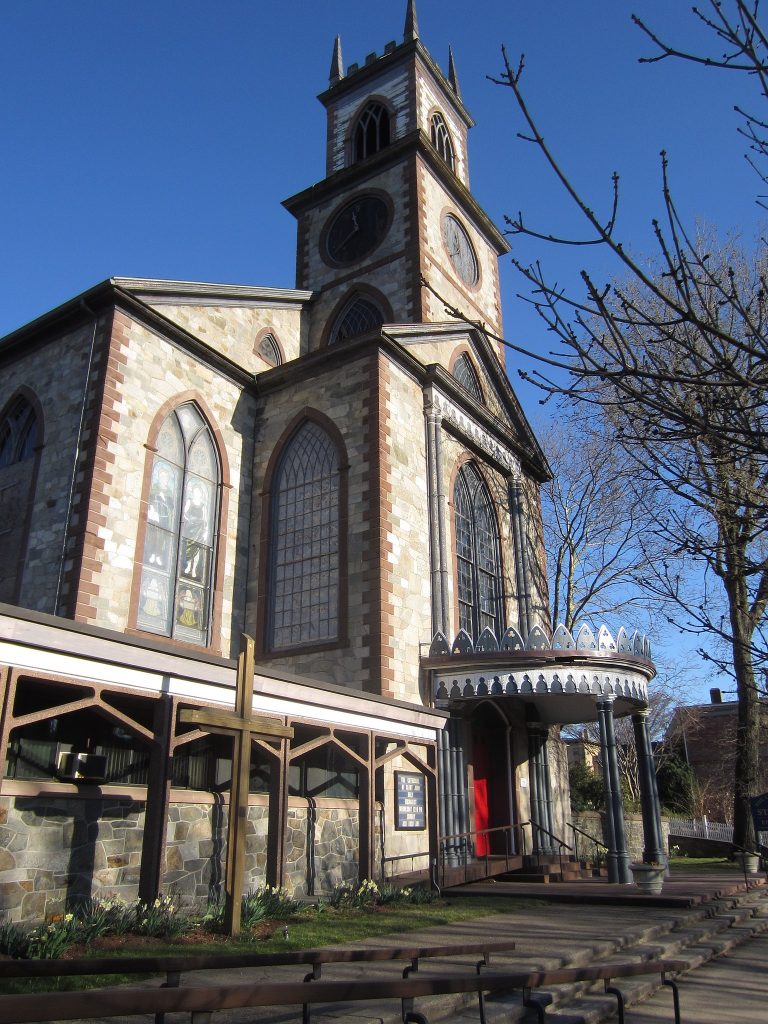Art & Exhibitions
Rhode Island Wants Its Own Slavery Museum
Church officials wants to speak truth to the local slave trade of yore.

Church officials wants to speak truth to the local slave trade of yore.

In Providence, a former church may have a second life as a museum exploring the history of the slave trade in the state, reports the Providence Journal.
The Cathedral of St. John was closed two and a half years ago when the Episcopal Diocese of Rhode Island was no longer able to afford upkeep and repairs on the 200-year-old building.
Although slavery is no longer widely associated with northern states, Rhode Island played an important role in the slave trade in the 18th and early-19th centuries, as Newport, Bristol and Providence were major slaving ports. Over 1,000 journeys between African and the colonies were funded by Rhode Islanders, providing the bedrock on which the state’s ship-building and shipping industry grew.
It is that troubled history that has inspired the diocese to open the museum. Bishop Nicholas Knisely admitted at a conference last month that many businesses that were built on the slave trade “were owned and operated by Episcopalians. So we feel we have both an obligation and an opportunity to speak the truth about the church’s role in the slave trade.”
Another Museum Planned
The museum is not the only planned American institution that will confront an ugly racist past that some might prefer to see glossed over and forgotten.
In Charleston, South Carolina, there is a project underway for a $75 million International African American Museum on the site of Gadsden’s Wharf, which was the port of entry for tens of thousands of slaves entering American for the first time.
Diocese officials have already improved plans for the Cathedral-museum conversion, which will include a national Center for Reconciliation that will host lectures, seminars concerts, training programs in reconciliation, and other programming. “We need to begin to take steps to overcome divisions and become a community again,” diocese official Linda L. Grenz told the Journal.
Opening the museum won’t be an easy process, as the church, considered an endangered property by the Providence Preservation Society, is in sore need of repairs. The diocese is working with the Massachusetts-based Tracing Center, an educational organization, and Brown University’s Center for the Study of Slavery and Justice to get the ball rolling, and hopes to attract other partners and grant money for the project.